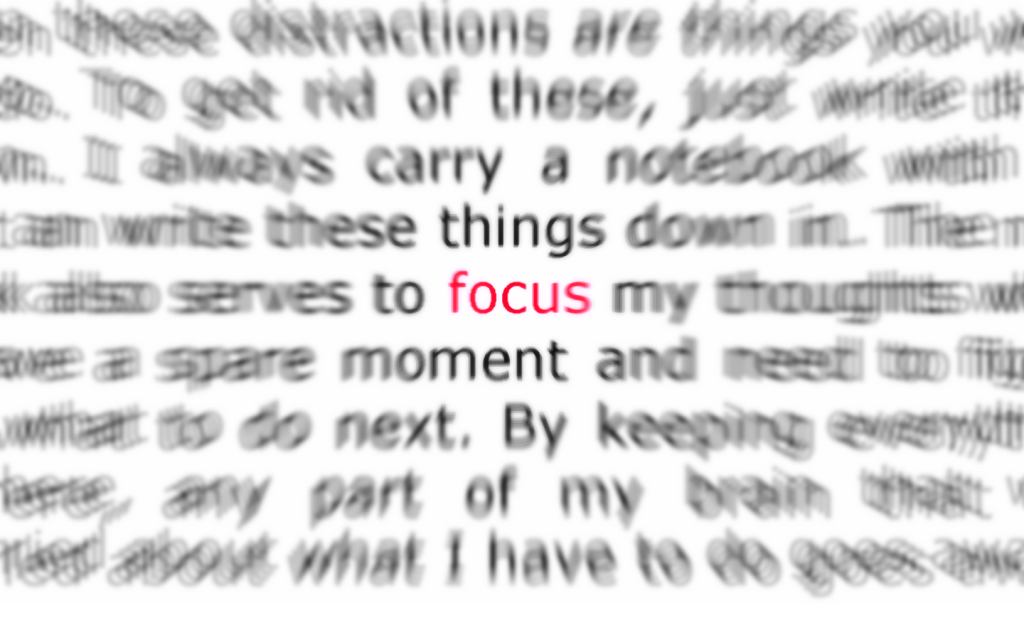When you begin to write with intention and regularity, you’ll quickly notice the difficult balance of writing for the practice and writing with a focus. When your blog is young, it’s tempting to write about anything and everything that crosses your mind. The pros of the general curation model are that you feel free to write about a variety of topics, and thus can (ideally) crank out more work. I followed this path the first several months of MattRagland.com, with a vague focus on lifestyle management, priorities, and personal development.
The problem though was in the vagueness of my writing. I wrote about topics that interest me, and I have a passion for. I’d write about spirituality, writing, sports, outdoors, business, productivity, personal matters, education, creativity, and more. All of those are topics worth tackling and wrestling over, however they didn’t give readers a clear reason as to why they should stick around. I didn’t have a focus on I was writing about on a post-to-post basis, and thus didn’t give them a compelling reason to keep reading or even come back.
When you want to write, the 1st step is to begin writing.
In the past, I would get bogged down in over-thinking my writing, making the process of starting more difficult than it had to be. Simply starting, and hitting publish over and over, is a key part of narrowing your focus. Write about lots of topics, and see what resonates with you, where your passion can meet the needs of others. Just start.
Now, very smart people have written very good pieces on what to do, and I encourage you to check them out. CopyBlogger, ProBlogger, Jeff Goins, Chris Guillebeau, and several more are available to you. Just do some digging and don’t be afraid to ask!
Here’s the catch though; you don’t need to share everything you write.
Again, here’s the paradox. I began my blog by writing about anything I could, just to get words on screen. But I was serving up a diluted message, and readers didn’t know what to latch on to. I couldn’t lead a tribe because I didn’t know where anyone was going. But you can’t just sit around waiting for inspiration to strike, you have to get to work and keep practicing. So where’s the balance?
One option is to keep a journal, where you can steadily practice your writing without the pressure of sharing something you feel comfortable with. The audience is you, and the practice is active. Now, many people try and start a journal and fail (like me), for a variety of reasons. My primary reasons are a lack of accountability (no one gets upset if I don’t journal) and the presence of ego (I want the social proof and affirmation).
Another option is to write on a shared platform like Medium. I don’t recommend using this as a primary platform/home, you still need a personal basecamp to share your focused writing. What a community like Medium does is give your random posts a home by sharing them in collections. In some ways, you can think of it as an always-on guest post resource. I recommend Medium because of the curated collections and the simple beauty of their layout. Get an account here.
You need to find a focus, mission, and answer the question of “Why?”
There is certainly flexibility around your mission, but your mission needs to frame your blog and why it exists. My first big guest post was for the Buffer blog, and people who clicked through probably thought: “This guy wrote about productivity and organization, but most of what I see here is about spirituality, writing, and running.”
I first thought, “I know people who write general, personal blogs. There’s Leo from Zen Habits, the Minimalists, Tim Ferriss, or Joel Runyon“. This is true, but when I thought about it more, I realized that each of these writers has a focus and mission to their sites.
- Leo – Simplicity and Peace
- Minimalists – Um, Minimalism
- Tim Ferriss – Lifestyle Design
- Joel Runyon – Doing impossible things, telling a story
The other direction to take is to have a very specific focus to your blog, like Nerd Fitness, The Art of Manliness, No Meat Athlete, or Smart Football. These authors craft their sites around specific content and topics, leaving the generalities to others. They are about the details! Yes, there is flexibility within their topic, but everything points back to their focus.
How did I start to narrow down the topics? As mentioned before, it was thanks to Jeff Goins’ Intentional Blogging course (free, register here) , I was able to visually get down what interested me. There was a lot, as you can see.

As you can see, the focus of my blog and yours is important. If we want to “turn pro”, as Steven Pressfield talks about, we need to decide what the focus and mission of our work is. It’s fine to have a general blog that shares about your life, and communicates with friends and family.
But that’s not what I’m talking about. I’m talking about doing the work, creating value and connections for others, and being a professional.
Once you’ve found your focus, get to it. You may need to buy a new domain name, and the process of generating content begins again. Make sure you pick a mission that resonates with you, because without that internal drive, the grinding days will feel that much worse, and your great days will not feel that great.
Do what you love, even if it makes you less money. Passion, flexibility, and simplicity are better.
Have a great day.
